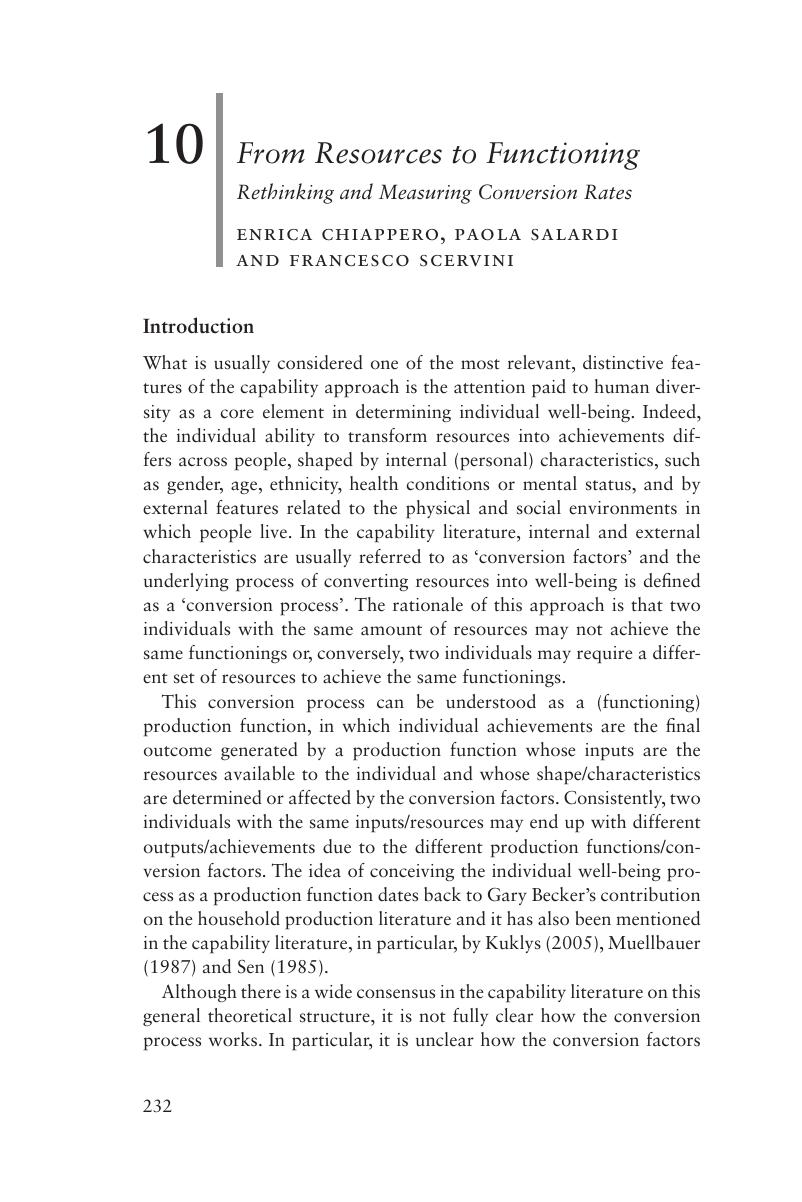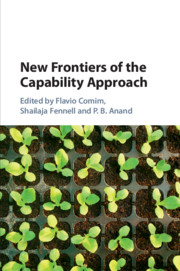Book contents
- New Frontiers of the Capability Approach
- New Frontiers of the Capability Approach
- Copyright page
- Contents
- Figures
- Tables
- Contributors
- Preface and Acknowledgements
- 1 Introduction
- 2 On Sen on the Capability of Capabilities
- Part I The Need for New Foundations
- Part II The Operationalisation Frontier
- 8 Sen's Capability Approach, Social Choice Theory and the Use of Rankings
- 9 Selecting Capabilities for Development
- 10 From Resources to Functioning
- 11 Demystifying the Use of Simultaneous Equation Models for Operationalising the Capability Approach
- Part III The Application Frontier
- Part IV The Housing and Urban Frontier
- Part V The Education Frontier
- Author Index
- Subject Index
- References
10 - From Resources to Functioning
Rethinking and Measuring Conversion Rates
from Part II - The Operationalisation Frontier
Published online by Cambridge University Press: 08 October 2018
- New Frontiers of the Capability Approach
- New Frontiers of the Capability Approach
- Copyright page
- Contents
- Figures
- Tables
- Contributors
- Preface and Acknowledgements
- 1 Introduction
- 2 On Sen on the Capability of Capabilities
- Part I The Need for New Foundations
- Part II The Operationalisation Frontier
- 8 Sen's Capability Approach, Social Choice Theory and the Use of Rankings
- 9 Selecting Capabilities for Development
- 10 From Resources to Functioning
- 11 Demystifying the Use of Simultaneous Equation Models for Operationalising the Capability Approach
- Part III The Application Frontier
- Part IV The Housing and Urban Frontier
- Part V The Education Frontier
- Author Index
- Subject Index
- References
Summary

Information
- Type
- Chapter
- Information
- New Frontiers of the Capability Approach , pp. 232 - 245Publisher: Cambridge University PressPrint publication year: 2018
References
Accessibility standard: Unknown
Why this information is here
This section outlines the accessibility features of this content - including support for screen readers, full keyboard navigation and high-contrast display options. This may not be relevant for you.Accessibility Information
- 5
- Cited by
